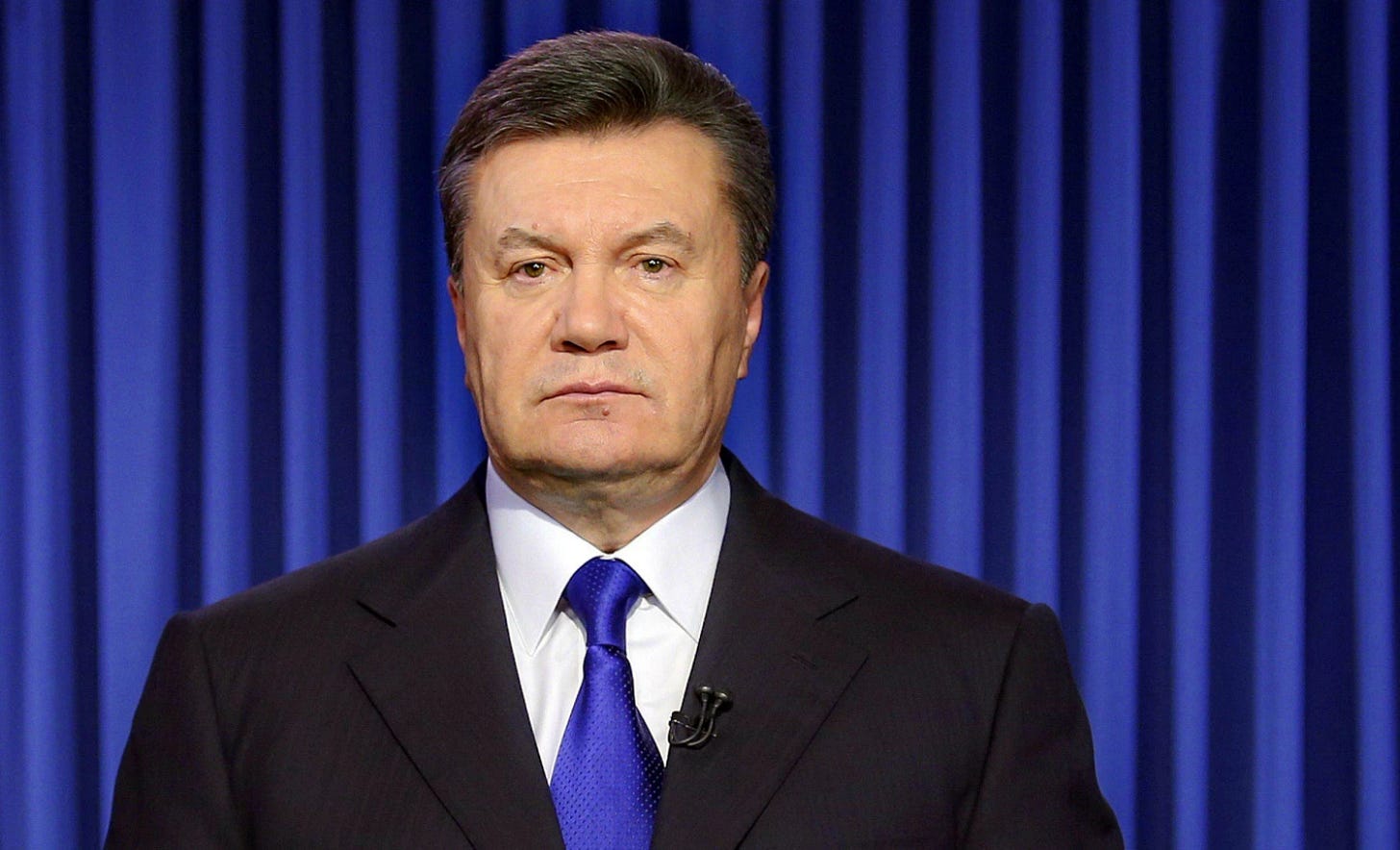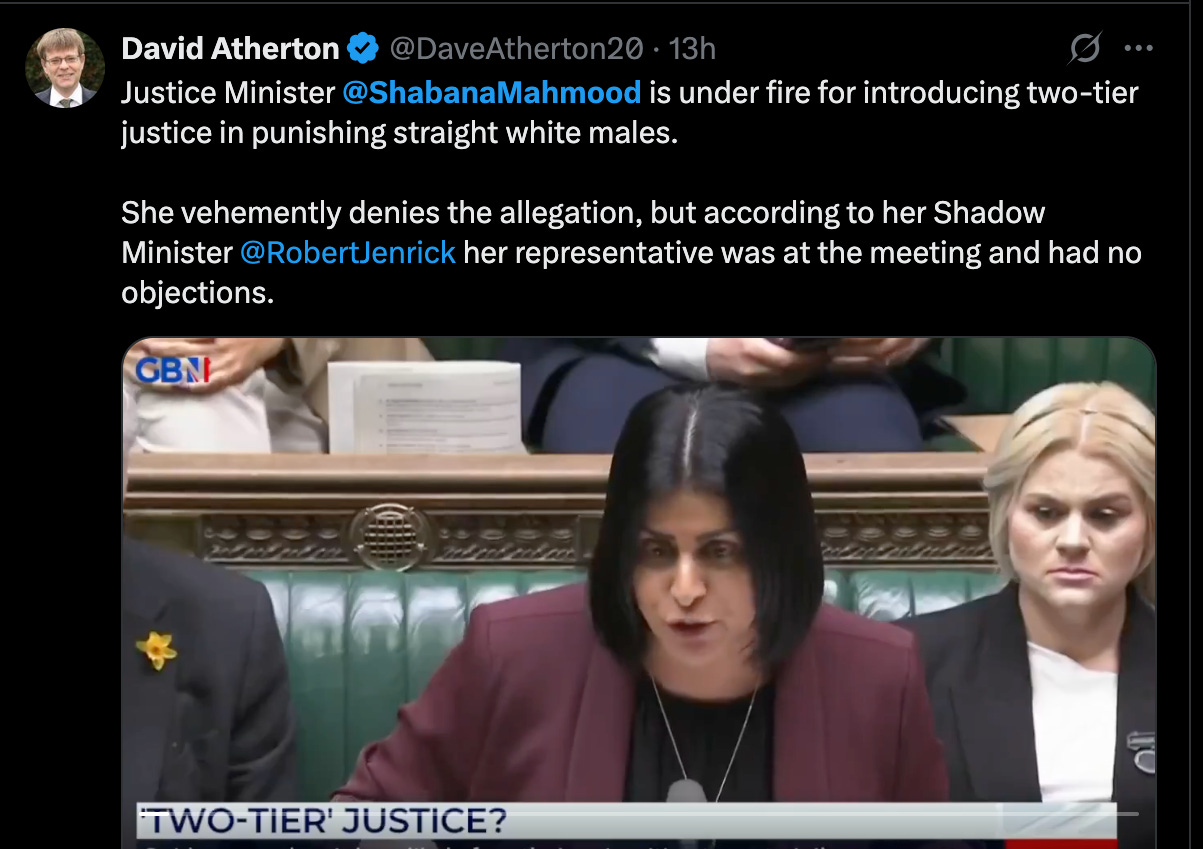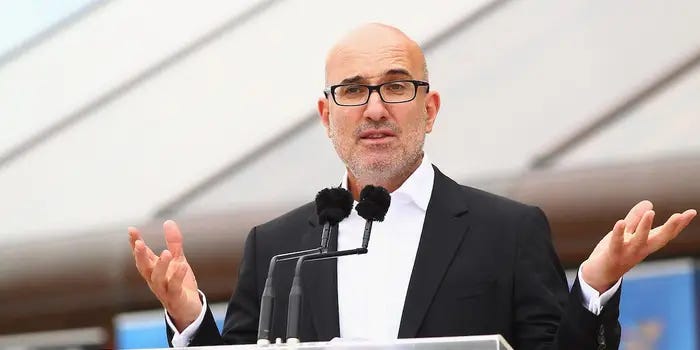NATO and US aggression the real story of Ukraine, two-tier justice in black and white... and a good week for GB News
The Digital Digest: News Uncut's take on stories from around the web
By Gary Chappell and Jasmine Birtles
THE internet and mainstream media is currently awash with a pro-Ukraine rhetoric based largely on misinformation. A favourite phrase of many goes something like: “The full-scale Russian invasion” or “the illegal Russian invasion”.
Anyone who dares question this is instantly smeared as either a “friend of Putin” or a “Putin apologist”.
Many media commentators are acting irresponsibly in their role as TV or radio hosts by pumping out this surface argument without fully grasping the history of the conflict. It is akin to the Covid era, when millions were effectively brainwashed when the TV kept telling them that the jabs were “safe and effective” and to “social distance” to save lives etc, etc.
There is one particular authority on the Ukraine issue who articulates its history with crystal clarity. Here, News Uncut is publishing the views of prominent American economist and public policy expert Jeffrey Sachs (above).
He understands, unlike so many, that the conflict was not simply an idea Vladimir Putin had one morning. And that Putin is not, unlike the opinion of many, planning to invade other European countries after he is finished with Ukraine.
We would urge you to use this as a reference point should any explanation be needed by friends or family who, like the UK Government, appear to want the bloodshed to continue unabated.
NATO expansion and broken assurances from 1999
Sachs emphasises that the eastward expansion of NATO, despite assurances to the contrary, played a pivotal role in escalating tensions with Russia. He points out that the inclusion of Eastern European countries in NATO, starting in 1999, contradicted promises made to Russia after the Cold War, thereby increasing Russia's sense of insecurity. This expansion, according to Sachs, was perceived by Russia as a direct threat to its sphere of influence and national security.
The 2008 Bucharest summit decision
At the 2008 NATO summit in Bucharest, the alliance extended membership prospects to Ukraine and Georgia. Sachs argues that this decision was a critical misstep, as it ignored Russia's clear objections and concerns. He suggests that this move was a significant factor in heightening geopolitical tensions, contributing to the conflict that unfolded in subsequent years.
Sachs explains: “According to the US Government and the ever-obsequious New York Times, the Ukraine war was ‘unprovoked’, the Times’ favorite adjective to describe the war. Putin, allegedly mistaking himself for Peter the Great, invaded Ukraine to recreate the Russian Empire. Yet [in September 2023] NATO Secretary-General Jens Stoltenberg (below) committed a Washington gaffe, meaning that he accidently blurted out the truth.
“In testimony to the European Union Parliament, Stoltenberg made clear that it was America’s relentless push to enlarge NATO to Ukraine that was the real cause of the war and why it continues today. Here are Stoltenberg’s revealing words:
“The background was that President Putin declared in the autumn of 2021 and actually sent a draft treaty that they wanted NATO to sign, to promise no more NATO enlargement. That was what he sent us. And was a pre-condition to not invade Ukraine. Of course, we didn't sign that.
“The opposite happened. He wanted us to sign that promise, never to enlarge NATO. He wanted us to remove our military infrastructure in all Allies that have joined NATO since 1997, meaning half of NATO, all the Central and Eastern Europe, we should remove NATO from that part of our Alliance, introducing some kind of B, or second-class membership. We rejected that.
So, he went to war to prevent NATO, more NATO, close to his borders. He has got the exact opposite.”
Sachs continued: “To repeat, he [Putin] went to war to prevent NATO, more NATO, close to his borders.
“Why does Russia oppose NATO enlargement? For the simple reason that Russia does not accept the US military on its 2,300 km border with Ukraine in the Black Sea region. Russia does not appreciate the US placement of Aegis missiles in Poland and Romania after the US unilaterally abandoned the Anti-Ballistic Missile (ABM) Treaty.
“Russia also does not welcome the fact that the US engaged in no fewer than 70 regime change operations during the Cold War (1947-1989) and countless more since, including in Serbia, Afghanistan, Georgia, Iraq, Syria, Libya, Venezuela, and Ukraine.
“Nor does Russia like the fact that many leading US politicians actively advocate the destruction of Russia under the banner of ‘Decolonising Russia’. That would be like Russia calling for the removal of Texas, California, Hawaii, the conquered Indian lands and much else, from the United States.”
The 2014 Ukrainian revolution and Western involvement
The 2014 Ukrainian revolution, which led to the ousting of President Viktor Yanukovych (below), is another focal point in Sachs’ analysis. He posits that the United States played an active role in the events leading up to the revolution, supporting opposition groups and contributing to the political upheaval. Sachs suggests that this involvement may have been perceived by Russia as a threat to its interests, further exacerbating the conflict.
The absence of a formal end to World War II
Sachs also highlights the historical context of the conflict, noting that World War II did not conclude with a formal peace treaty. He points out that the Soviet Union's immense sacrifices during the war led to a demand for security guarantees, which were not adequately addressed in the post-war settlement. This historical grievance, Sachs argues, has influenced Russia's security policies and its reactions to NATO's expansion.
Diplomacy and compromise as alternatives
Drawing parallels with historical events, Sachs advocates for diplomacy and compromise as essential tools for resolving conflicts. He references the Cuban Missile Crisis as an example, where the US and the Soviet Union averted nuclear war through negotiation and mutual concessions. Sachs suggests that similar diplomatic efforts could have been employed to address the security concerns of all parties involved in the Ukraine conflict.
Sachs concludes: “Yes, Putin went to war to prevent NATO, more NATO, close to Russia’s border.
“Ukraine is being destroyed by US arrogance, proving again Henry Kissinger’s adage that to be America’s enemy is dangerous, while to be its friend is fatal.
“The Ukraine War will end when the US acknowledges a simple truth: NATO enlargement to Ukraine means perpetual war and Ukraine’s destruction. Ukraine’s neutrality could have avoided the war and remains the key to peace. The deeper truth is that European security depends on collective security as called for by the Organisation for Security and Co-operation in Europe (OSCE), not one-sided NATO demands.”
Two-tier justice in black and white
The Sentencing Council which sets guidelines for UK judges has introduced new rules that treat ethnic minorities and trans people more favourably than others.
The Council is advising a pre-sentence report (PSR) “will normally be considered necessary” before sentencing a criminal from an ethnic, cultural or faith minority.
Shadow justice secretary Robert Jenrick accused the new guidelines of having “blatant bias” against Christians and straight white men.
It confirms a two-tier justice system in black and white.
But despite having a representative in Parliament when the move was debated and who raised no objections, Justice Secretary Shabana Mahmood has since ordered a review of the powers of the independent body.
In a letter to the chair of the council, Lord Justice Davis, Mahmood wrote: “I must make clear my displeasure at the direction that this guideline took in recommending differing approaches for those from ethnic minorities, cultural minorities and/or from a faith minority background.
“As someone who is from an ethnic minority background myself, I do not stand for differential treatment before the law like this.”
A good week for GB News
IT HAS been a good week for GB News. Not only has a major retailer – Marks and Spencer no less – decided to run some advertising with them, but they managed to win against the ‘Ofcommunists’ (as Dan Wootton calls them) in court.
The landmark ruling in favour of GB News also saw the channel awarded costs by the High Court. Could this be the start of a shift in power away from the Blairite so-called ‘regulator’ and more towards those who want freedom of speech and honesty of expression?
The ruling was over assertions by Ofcom that two shows hosted by Sir Jacob Rees-Mogg (below) on May 9 and June 13 2023, breached the broadcasting Code of due impartiality and content regulations.
It has been obvious from even before the channel launched that there were forces determined to strangle it at birth. As it grew more sturdy, the attacks increased and are still continuing.
Ofcom was set up by the Blair government in 2003. It took over the duties previously held by five different regulators, including the Broadcasting Standards Commission, Independent Television Commission, Office of Telecommunications (Oftel), the Radio Authority and the Radiocommunications Agency.
It has faced criticism from far left groups for being too lenient on GB News, including one particularly aggressive demand in 2022. However, it has noticeably kept silent on other broadcasters’ political leanings, such as Good Morning Britain where former Labour MP Ed Balls interviewed his wife and current Labour MP Yvette Cooper and gave her an easy ride.
The historic judgment in GB News’s favour is the first time the broadcasting watchdog has lost a judicial review of one of its decisions in relation to the Broadcasting Code.
GB News CEO Angelos Frangopoulos (below) said: “This landmark decision by the High Court vindicates GB News’ position as the fearless defender of Free Speech in the United Kingdom.
“Our court victory is hugely significant for the entire British broadcasting industry. We are proud that we were the only media company prepared to have the courage of our convictions.
“Ofcom has been found to have acted unlawfully so much so that it even breached Human Rights law.”
GB News goes from strength to strength with strong viewer support, particularly outside of city centres. However, it still has financial concerns. Its losses since inception now top £100m, although it’s revenues doubled in 2024 and the new deal with Marks and Spencer will give them a big boost and encourage other major brands to ignore the haters (‘Stop Funding Hate’, for example) and take the leap into supporting the still young broadcaster.











